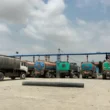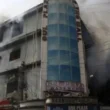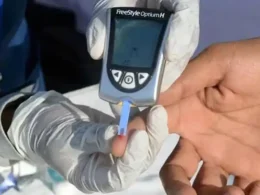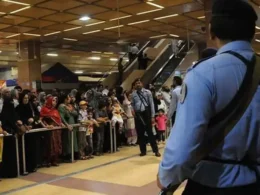Pakistan is facing its worst-ever water crisis as a 100-year record of water shortage in the Indus River has been broken.
According to the Irrigation Department, Sindh is currently suffering a sixty-five percent water shortage across its three main barrages this April.
Officials blame the drastic reduction in rainfall – down by forty percent – due to climate change for the historic drop in water availability.
At Sukkur Barrage alone, water shortage has reached seventy-one percent, rising from forty-nine percent in the same period last year.
Last year, all three major barrages in Sindh faced a total shortage of thirty-seven percent; this year, it has nearly doubled.
The Sukkur Barrage Control Room shared that water levels in Tarbela Dam have dropped by one foot from the previous mark.
Currently, the dam’s water level stands at 1410.32 feet, with an inflow of 22,600 cusecs and an outflow of 20,000 cusecs.
READ: Water expert reveals facts behind Indus canals project
From Kabul River, the Indus is receiving 18,200 cusecs, while Kalabagh Barrage has an inflow of 33,810 and outflow of 30,710.
Chashma Barrage is also under strain, with 30,038 cusecs flowing in and 32,000 cusecs being released downstream, data shows.
Meanwhile, four canals from Guddu Barrage have been closed since April 1 for annual maintenance, further tightening water availability.
At Sukkur Barrage, water inflow is 17,630 cusecs while outflow stands at just 6,100 cusecs—far below required levels.
The Kotri Barrage is receiving 4,590 cusecs, but only 190 cusecs are being discharged, reflecting extreme downstream scarcity.
Rais, Kher Thar, and Dadu Canals have also been closed for a month under the well-cleaning campaign launched by irrigation authorities.
The Rohri Canal is receiving only 4,900 cusecs instead of the usual 12,000 cusecs, and Nara Canal gets 4,900 instead of 12,400.
Khairpur East and West Canals are also under-supplied, receiving less than half of their regular water allocations due to the crisis.











